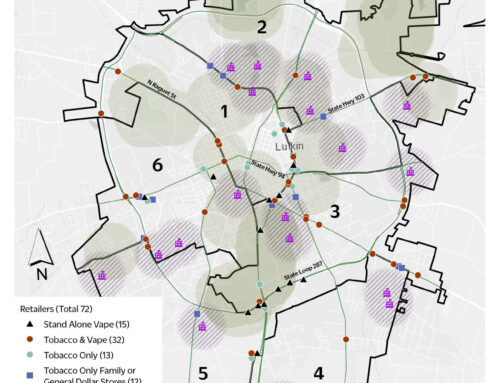The majority of Americans live in a state where cannabis is legal and marijuana has been decriminalized, while a growing number of states have legalized recreational marijuana. Here are a few lessons we can learn from past tobacco control challenges and successes to build a more equitable, health-focused cannabis policy landscape.
New research from University of Texas at Dallas researchers finds that when recreational marijuana is legalized, cigarette sales rise.
To put this in perspective, the majority of Americans live in a state where cannabis is legal. Recreational marijuana is now legal in 18 states, 2 territories, and the District of Columbia. The majority of US states have also decriminalized marijuana and legalized medical marijuana.
Amidst all this policy change, there has been little focus spent on protecting youth, made-vulnerable populations, and public health overall. Nearly 30 years of battling the “war in the store” has left tobacco prevention and control advocates with no shortage of lessons learned in dismantling the tobacco industry’s playbook that apply painfully well to cannabis policy.
Three of the many lessons we can learn from past tobacco control challenges and successes to build a more equitable, health-focused cannabis policy landscape are:
- Cannabis policy should be established with protections for children and youth, including eliminating flavored products. There’s a reason the tobacco industry has offered tobacco products that are colorful and close to candy — youth are an important target of the tobacco industry.
- Cannabis policy should prioritize racial equity. Purchase, use and possession laws in tobacco control have taught us the important need for equitable enforcement of commercial tobacco use.
- Cannabis policy should protect and promote public health. One of the many ways this can be addressed is by establishing minimum price floors and restricting discounts of cannabis products just as we’ve learned in tobacco control.
Not only must decision makers apply these lessons as we build systems for cannabis regulation, but tobacco control advocates must remain vigilant about the potential for cannabis regulation to erode the successes of tobacco policy change, both at the point of sale and smokefree air.
For model policy language and more suggestions for equitable cannabis policy, see Getting it Right from the Start.





